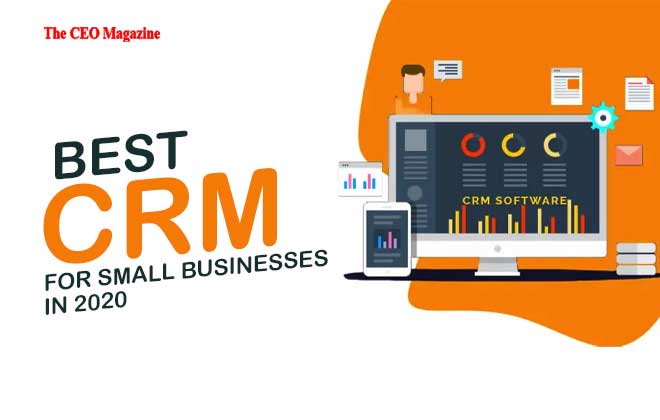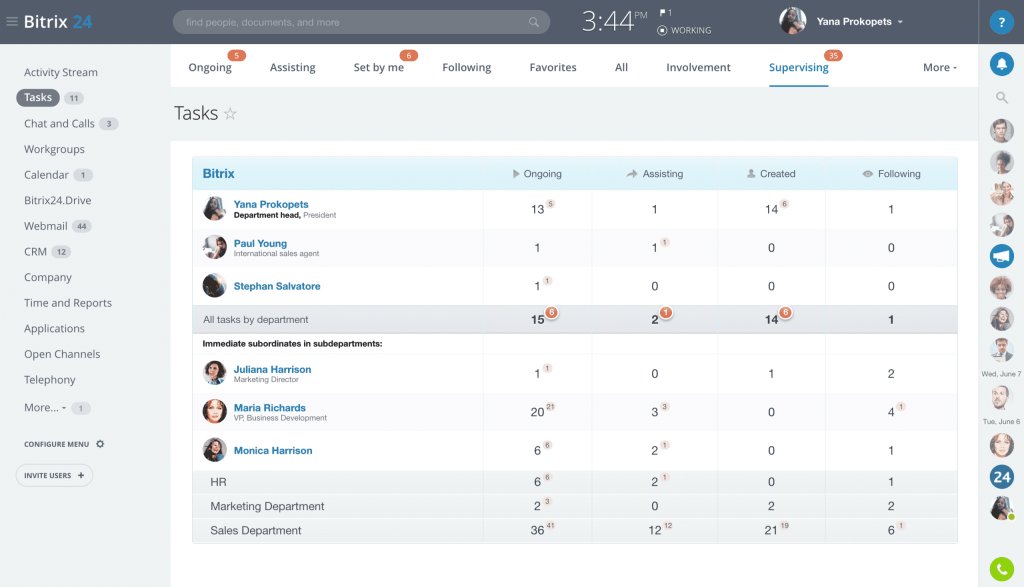
Choosing the right Customer Relationship Management (CRM) system is crucial for small businesses aiming for growth and efficiency. This comprehensive guide cuts through the noise, helping you identify the best CRM tailored to your specific needs. We’ll explore key features, essential considerations, and top contenders, ensuring you make an informed decision that boosts your bottom line and strengthens customer relationships. This isn’t just another CRM review; it’s your roadmap to success. We’ll cover everything from lead management to customer service automation, empowering you to choose the perfect tool to propel your business forward.

Introduction
Running a small business is challenging. You’re juggling marketing, sales, customer service, and a million other tasks. A well-chosen CRM can be the game-changer you need to streamline operations, improve customer interactions, and ultimately, increase revenue. But with so many options available, choosing the right one can feel overwhelming. This guide provides a clear, concise, and actionable path to finding the perfect CRM solution for your unique business needs, helping you navigate the complexities and make a confident choice. We’ll delve into the specifics, offering insights to make your decision process smoother and more effective.
Frequently Asked Questions
Q1: What is a CRM and why does my small business need one?
A CRM, or Customer Relationship Management system, is software designed to manage and analyze customer interactions and data throughout the customer lifecycle. For small businesses, a CRM helps centralize customer information, automate tasks, improve communication, and ultimately increase sales and customer satisfaction. It’s an invaluable tool for staying organized and growing efficiently.
Q2: How much does a CRM cost?
CRM pricing varies greatly depending on the features, provider, and number of users. You can find options ranging from free plans with limited functionalities to enterprise-level solutions costing thousands of dollars per month. Many providers offer tiered pricing models, allowing you to choose a plan that fits your budget and requirements. Carefully consider your current and future needs before selecting a plan.
Q3: How long does it take to implement a CRM?
Implementation time depends on the complexity of the CRM, the size of your business, and your team’s technical skills. Some simpler CRMs can be set up in a matter of hours, while more complex systems may require weeks or even months of configuration and training. Choose a CRM with robust onboarding support to minimize the implementation time and ensure a smooth transition.
Contact Management
Effective contact management is the cornerstone of any successful business. A good CRM should make it effortless to organize and interact with your customers.
- Centralized Database: All customer information – contact details, purchase history, communication logs – is stored in one easily accessible place, eliminating data silos and improving team collaboration.
- Customizable Fields: Tailor your CRM to fit your specific business needs by adding custom fields for tracking relevant information, such as customer preferences, project details, or notes from sales calls.
- Segmentation & Filtering: Group customers based on various criteria (location, purchase history, demographics) to personalize marketing efforts and target specific segments with tailored messaging.
- Import & Export Capabilities: Easily import existing customer data from spreadsheets or other sources and export data for reporting and analysis.
- Integration with other tools: Seamlessly integrate your CRM with other business applications like email marketing platforms, accounting software, and social media tools to streamline workflows.
Lead Management
Turning leads into customers is the lifeblood of any business. A robust lead management system within your CRM can significantly improve your conversion rates.
- Lead Capture & Tracking: Capture leads from various sources (website forms, social media, email marketing) and track their progress through the sales funnel.
- Lead Scoring & Prioritization: Assign scores to leads based on pre-defined criteria to identify high-potential prospects and prioritize your outreach efforts.
- Automated Workflows: Automate repetitive tasks like sending follow-up emails, assigning leads to sales reps, and updating lead status, freeing up time for more strategic activities.
- Sales Pipeline Visualization: Get a clear overview of your sales pipeline, tracking the progress of each lead and identifying potential bottlenecks.
- Reporting & Analytics: Track key metrics like lead conversion rates, sales cycle length, and revenue generated from different lead sources to optimize your sales process.
Customer Service & Support
Exceptional customer service is crucial for building brand loyalty and repeat business. A CRM enhances your customer support capabilities.
- Ticket Management: Efficiently manage customer inquiries, track their resolution status, and ensure timely responses.
- Knowledge Base Integration: Provide self-service options for customers by integrating your CRM with a knowledge base or FAQ section.
- Communication Channels: Offer multiple communication channels (email, phone, chat) to cater to diverse customer preferences.
- Automated Responses: Set up automated responses for common inquiries to free up your support team and provide instant support.
- Customer Feedback Collection: Gather customer feedback through surveys, reviews, or feedback forms to continuously improve your service.
Sales Automation
Automating repetitive sales tasks frees up your sales team to focus on more strategic activities, increasing efficiency and productivity.
- Automated Email Sequences: Send targeted email sequences to nurture leads and move them through the sales funnel automatically.
- Appointment Scheduling: Simplify appointment scheduling with automated reminders and calendar integrations.
- Sales Forecasting: Use data-driven insights to predict future sales performance and proactively adjust your sales strategies.
- Reporting and Analytics: Track key sales metrics, identify areas for improvement, and measure the effectiveness of your sales strategies.
- Team Collaboration Tools: Enable seamless communication and collaboration among sales team members to improve efficiency and sales performance.
Reporting & Analytics
Data-driven decision-making is critical for small business growth. A CRM provides valuable insights into your customer interactions and business performance.
- Customizable Dashboards: Create custom dashboards to track key performance indicators (KPIs) relevant to your business goals.
- Sales Reports: Generate reports on sales performance, lead conversion rates, and revenue generated from different channels.
- Customer Segmentation Reports: Analyze customer segments to identify patterns and trends in customer behavior.
- Marketing Campaign Reports: Measure the effectiveness of your marketing campaigns by tracking key metrics like open rates, click-through rates, and conversions.
- Predictive Analytics: Leverage predictive analytics to forecast future trends and proactively adjust your strategies to maximize growth.
Conclusion
Choosing the right CRM for your small business is a significant decision that impacts your operational efficiency, customer relationships, and ultimately, your bottom line. By carefully considering your specific needs and evaluating the features and functionalities discussed in this guide, you can confidently select a CRM that empowers you to achieve your business goals. Remember to prioritize ease of use, scalability, and integration capabilities when making your final choice. Don’t just buy a CRM; invest in a tool that will drive your business forward.
